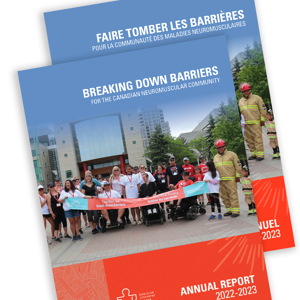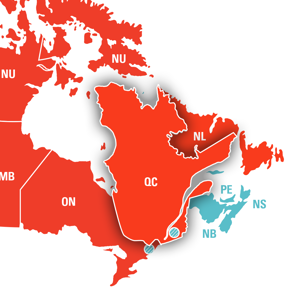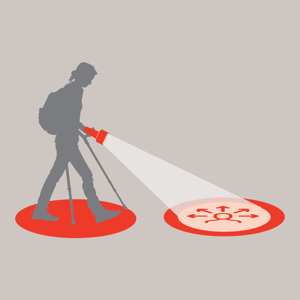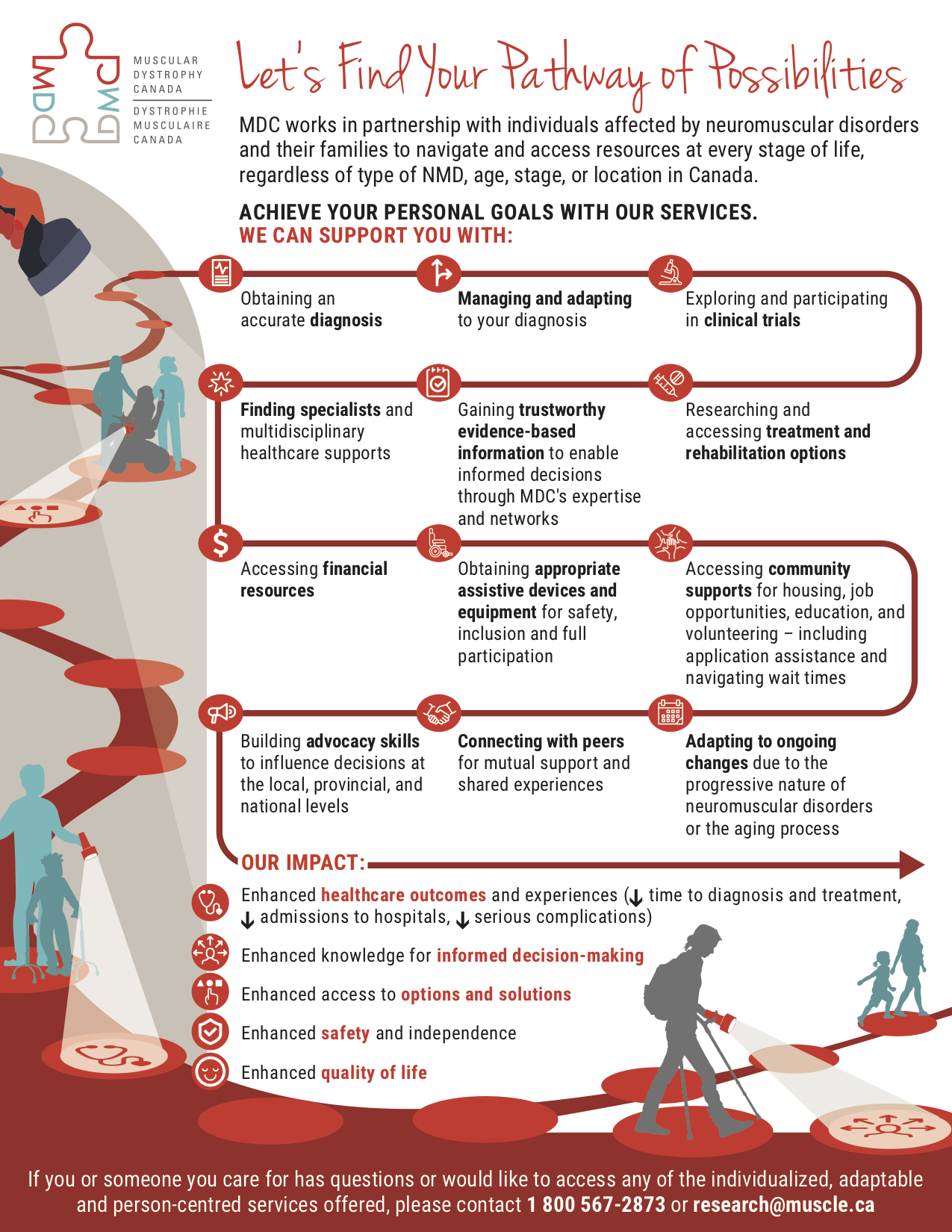Accomplishments you made possible last year!
At its annual general meeting, the Muscular Dystrophy Canada Board of Directors officially issued its 2022-2023 Annual Report and what’s abundantly clear, is that thanks to your support we accomplished so much and broke down even more barriers for the neuromuscular community. Thank you!
- We invested $2 million to fund: nine new clinical and translational science research projects through our Neuromuscular Research Grant Competition; six fellowships; two collagen 6-related dystrophy (Col6-RD) research projects in partnership with CureCMD; and, other projects to ensure the momentum we are seeing in research continues.
- We partnered with Independent Living Canada, People First Canada, Inclusion Canada, Eviance, the Canadian Association of the Deaf, and the Canadian Council on Rehabilitation and Work to produce Shaping Caada’s Disability Inclusion Action Plan (DIAP), a report that will inform the federal government’s national Disability Inclusion Action Plan.
- 491 individuals affected by neuromuscular disorders registered with MDC, an increase of 17% over the previous year. To accommodate this growth and provide support, we increased the funds directed towards Mission activities by 11%.
- We diversified our fundraising by meeting new donors and better understanding their interests, and ensured all donors were being stewarded in ways that were meaningful for them. As a result, MDC increased its total fundraising by $2.6 million over the previous year for a total of $10.7M in revenue.
All of this was possible, because of people like you! Thank you for your commitment to MDC’s mission. We’re breaking down barriers for the neuromuscular community, together, so that sometime soon a breakthrough is made that leads to cures.
BOARD OF DIRECTORS
“I’m excited to welcome Fanny Chagnon, Liz Stirling, Lise Poulin, Nicole Cote and Michael Low to the MDC Board of Directors. Their wealth of knowledge, talents and familiarity with neuromuscular disorders will be invaluable for providing strategic guidance as we continue to break down barriers for the neuromuscular community this year. I am also extremely pleased that Debra Chiabai has stepped into the Chair position,” said Stacey Lintern, CEO, Muscular Dystrophy Canada.
New Board Chair Debra Chiabai added, “It has been a great pleasure to be a member of the Board as a Director for the last 13 years, and I am looking forward to stepping into a new role to help guide MDC through the next few years.”






